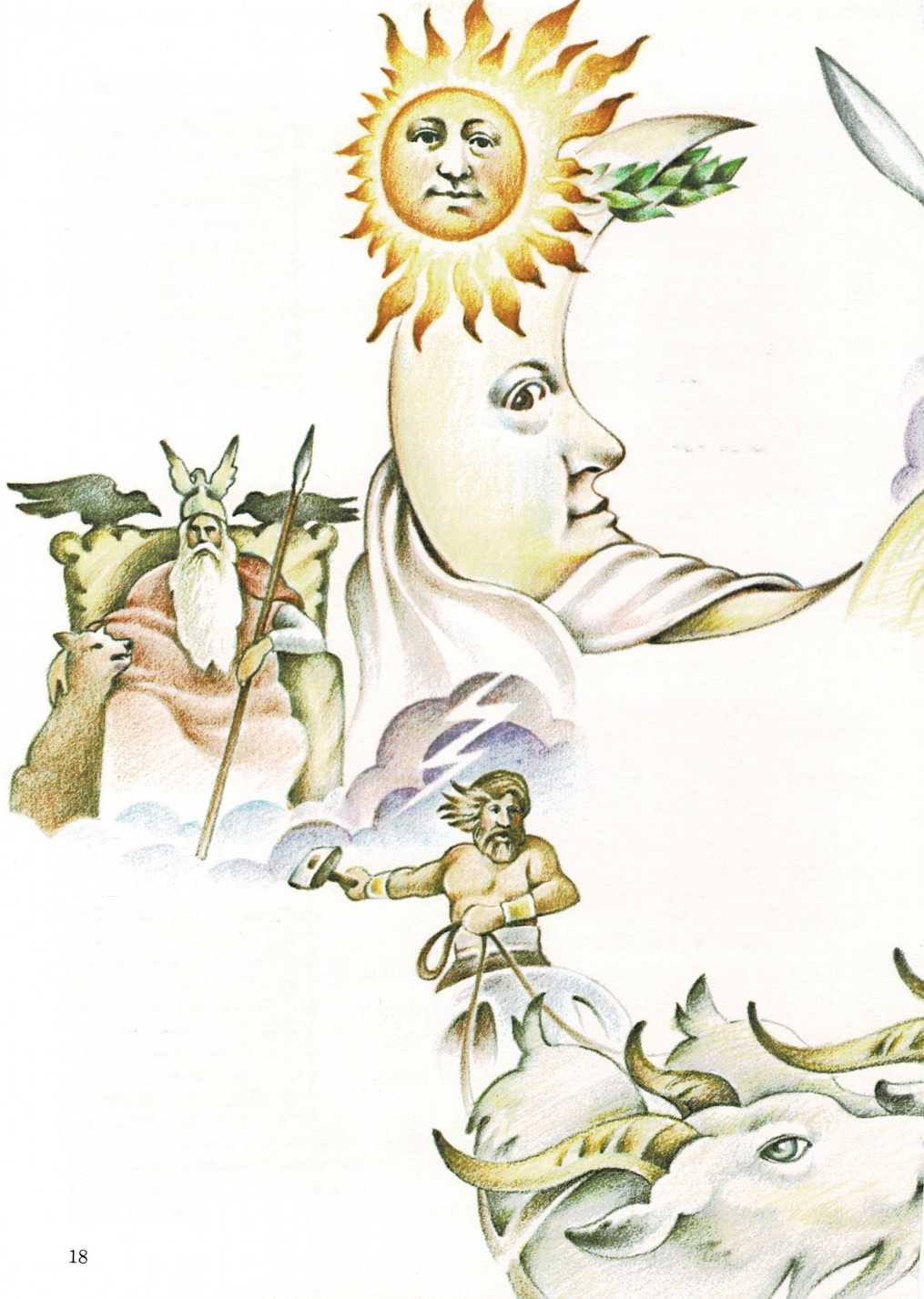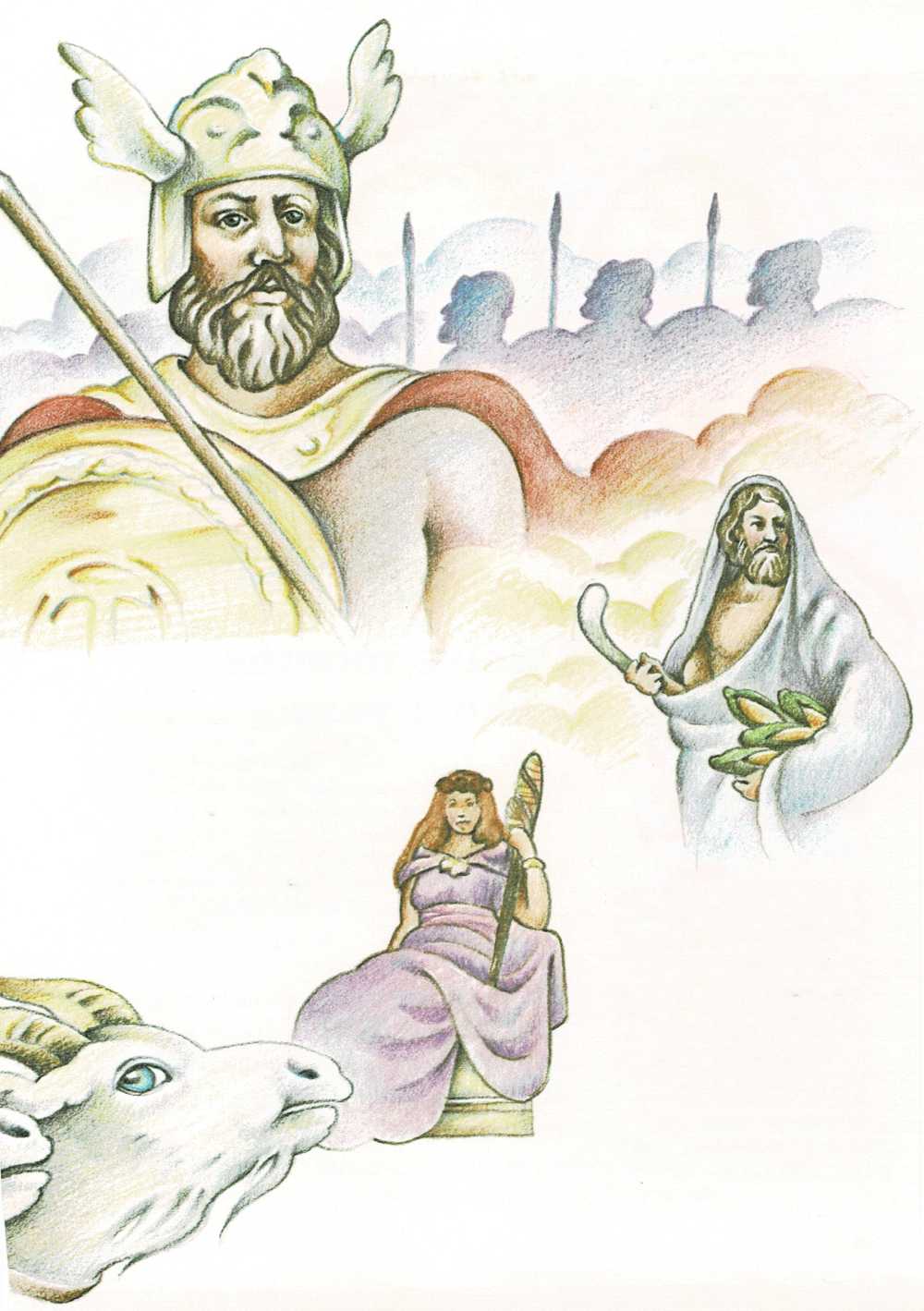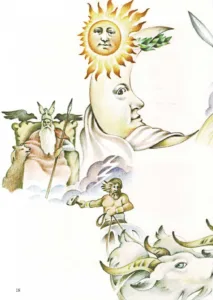Seven days make a week
Monday’s child is fair of face, Tuesday’s child is full of grace,
Wednesday’s child is full of woe, Thursday’s child has far to go,
Friday’s child is loving and giving, Saturday’s child works hard for his
living, And the child that is born on the Sabbath day Is bonny and
blithe and good and gay.
Old Nursery Rhyme
Why are there seven days in a week? Why not six, eight, or ten?
The word week means “a turning.” Long ago, a week was the length of
time between market days. This was anywhere from four to ten days.
We don’t know for certain why or when the seven-day week began. The idea
may have come from the people of ancient Babylon. Among them, the number
seven was sacred. They also worshiped the seven heavenly bodies that
they could see—the moon, the sun, and five of the planets—Mercury,
Venus, Mars, Jupiter, and Saturn.
We do know that the ancient Hebrews were among the first people to adopt
a sevenday week. Their week was based on the story of Creation in the
Bible. There, it says that God created the world in six days and rested
on the seventh.
Have you ever wondered about the names of the days and what they mean?
Here are the stories behind the names of the days.

Sunday is the first day of the week. It is named for the sun. The
Romans called this day dies solis, or \”day of the sun.” Long ago,
people called Anglo-Saxons lived in England. Their name for this day
was sunnandaeg, or \”sun’s day.” In time, this became Sunday. The
early Christians made this day their Sabbath, or day of rest and
worship, because Christ rose from the dead on a Sunday.Thursday is the fifth day of the week. It is named for Thor, the
Norse god of thunder. The Romans called this day dies Jovis, or
\”Jove’s day,” after Jove (Jupiter), their chief god. The Anglo-Saxons
named this day Thuresdaeg, or \”Thor’s day.” In time, this became
Thursday.Wednesday is the fourth day of the week. It is named for Woden
(Odin), who was the most powerful of the Norse gods. The Roman name
for this day was dies Mercurii, or \”Mercury’s day.” Mercury was the
swift messenger of the gods. The Anglo-Saxons called this day
Wodnesdaeg, or \”Woden’s day.” In time, this became Wednesday. But
we say [wehnz]{.smallcaps} dee, or [wehnz]{.smallcaps} day, because
this is easier than [wehd]{.smallcaps} nehs day.Monday is the second day of the week. It is named for the moon.
The Roman name for this day was dies lunae, or \”day of the moon.”
The Anglo-Saxons called it monandaeg or \”moon’s day.” In time, this
became Monday.

Tuesday is the third day of the week. It is named for Tyr, the
Norse god of war. The Romans called this day dies Martis, or \”Mar’s
day,” after their god of war. The Anglo- Saxons called it Tiwesdaeg,
or \”Tiw’s (Tyr’s) day.” In time, this became Tuesday.Friday is the sixth day of the week. It is named for Frigg, the
Norse goddess of love. The Romans called this day dies Veneris, or
\”Venus’s day,” after their goddess of love. The Anglo- Saxons called
it Frigedaeg, or \”Frigg’s day.” Now we call it Friday.Saturday is the seventh day of the week. It is named for Saturn,
the Roman god of farming. The Roman name for this day was dies
Saturni, or \”Saturn’s day.” Among the Anglo-Saxons this became
Saeterdaeg. And now it is Saturday. The Jews made this day their
Sabbath, or day of rest and worship, because the Bible says that God
created the world in six days and rested on the seventh.

